Supporting small farms: how protecting local farms can protect local communities
Small farms make up more than a half of the agricultural land in the US and produce just over a fifth of the country’s agricultural produce. Not only do they play a vital role in feeding people, small farms are also integral to local communities. And yet, many small farmers have limited access to resources and find themselves at a social disadvantage due to bias and prejudice. E’licia Chaverest, from the Small Farms Research Center at Alabama A&M University, USA, is supporting these farmers to help them run successful and resilient farms.
Talk like a Small Farms Outreach Provider
Attorney — a person, typically a lawyer, appointed to act for another in business or legal matters
Experimental learning — the process of learning by doing. Hands-on experience can make it easier for students to learn and retain information
Limited resource farmer — a farmer who has limited or no access to the resources needed for managing a successful farm, such as specialised machinery, high quality seed, financial support or financial literacy
Monocrop — cultivation of a single crop species
Small farm — a farm (often family-owned) with an income under US$250,000 per year
Small farmer — someone who owns or manages a small farm
Socially disadvantaged farmer — a farmer who experiences prejudice, bias or discrimination due to their gender, race, ethnicity or nationality, which adds to the challenges of farming
What did you have for dinner last night? Whether it was steak and chips, a chickpea curry, or beans on toast, the chances are that most, if not all, of the ingredients were grown or reared on a farm. It can be easy to forget this. Go into any major supermarket and you will be confronted with aisle after aisle of plastic packaging and brightly coloured branding. Despite appearances, the vast majority of the food in our supermarkets started out in the dirt.
Since the advent of agriculture, roughly 12,000 years ago, we humans have relied on farming for our very survival. Even today, with our Big Macs, Whoppers and vegan chicken nuggets, farmers are the people who put food on our tables. Some farms can roll on for thousands and thousands of acres. Huge fields of monocrops, like corn and wheat, stretch out beyond the horizon and gigantic barns stuffed full of cows, pigs and chickens see millions of animals slaughtered every day. But not all farms are like this. In fact, 89% of farms in the US are classed as small farms.
These small-scale farms are vitally important, particularly for local communities. Small farms can support local businesses, create jobs for local people and bolster the local economy. During the COVID-19 pandemic, for example, global food supply chains collapsed, and many local farms stepped up to provide their local communities with food. Small farms are also much kinder to their local environments; biodiversity is much higher around them than around large, industrial-scale farms.
Unfortunately, running a small-scale farm is not easy. Smaller farms tend to have smaller financial margins, so one bad harvest, a sudden change in market conditions, or an extreme weather event can be disastrous. As the effects of the climate crisis start to kick in, farms of all sizes are struggling to adapt to changes in weather patterns and soil conditions. With less access to technology and fertiliser, small farms are particularly vulnerable to the effects of climate change.
Managing a successful small-scale farm is demanding work, even at the best of times. It is particularly difficult for those farmers who are socially disadvantaged or who lack access to resources. Unfortunately, farmers from minority backgrounds may receive less support from government services and programmes, and they may find it harder to acquire the resources needed to manage a successful farm.
E’licia Chaverest is the assistant director of the Alabama A&M University Small Farms Research Center (SFRC). She, along with others at the SFRC, is dedicated to helping limited resource, socially disadvantaged farmers in Alabama to manage profitable and resilient farms that benefit their local communities.
How does the SFRC help?
“The SFRC is actively involved in developing policies and programmes that aim to assist socially disadvantaged, limited resource minority farmers,” says E’licia. For example, E’licia has served on the New and Beginning Farmer Advisory Committee as part of a programme offered by the US Department of Agriculture (USDA). Her colleague, SFRC AAMU Director Dr Duncan M. Chembezi, inspired E’licia to apply for the position. He also recently held lengthy terms on the Advisory Committee on Minority Farmers, another important USDA programme. The SFRC will always have a seat at the table when policies and programmes are being developed. “We are here to be a voice for the voiceless,” says E’licia.
The New and Beginning Farmer Advisory Committee is responsible for developing a programme of support, and advises on loan requirements for new farmers who do not have much experience and need a helping hand to get started. By serving on this committee, E’licia can provide a voice for socially disadvantaged farmers and figure out how the programme can be changed to better support them.
The SFRC conducts research into the issues that affect limited resource farms and how these issues might be overcome. It also helps socially disadvantaged farmers to implement environmentally friendly practices on their farms and successfully market their produce, ensuring that these farms are both environmentally and financially sustainable. The SFRC recognises that one of the main challenges for socially disadvantaged farmers is their lack of access to government funding and services. Often, this is because of structural racial discrimination or bias, which makes it harder for certain people to access these support systems. The SFRC works closely with government agencies and farmers to mitigate these challenges.
Therefore, one of the SFRC’s priorities is to help socially disadvantaged farmers access key support so that they can address their farm endeavours. The SFRC helps farmers write grant proposals, facilitates one-on-one consultations with representatives from the USDA, develops educational programmes, such as conferences, seminars and workshops, at which farmers can find out about government initiatives. In addition, the SFRC provides training on new and emerging issues that directly affect farmers in general.
What happens at an SFRC conference?
The SFRC conferences are attended by small farmers from across that state of Alabama and beyond, local representatives from the USDA, charitable organisations and credit unions, which can grant loans to farmers. The conferences feature presentations from extension agents, agricultural organisations, researchers, government representatives and successful small farmers.
Reference
https://doi.org/10.33424/FUTURUM416
E’licia (left) with Eddie and Ruby Smith, veteran farmers located in Greensboro, Alabama.
© Dr Duncan M. Chembezi
These gatherings allow socially disadvantaged farmers to access information and engage with other people in their industry. The SFRC hopes that these conferences and workshops will foster a sense of community between local farmers that encourages them to share advice and support each other. Indeed, the SFRC also encourages small farmers to forge relationships with USDA agencies prior to needing their services.
In addition, the conferences give farmers the opportunity to take part in training and workshops that are designed to help them make their operation more sustainable and marketable, as well as to provide information on which services are available to them and how to access them. “This allows farmers to learn fully about government programmes in a non-judgemental environment,” says E’licia.
What kind of government programmes are available?
One of the most recent USDA programmes that the SFRC is implementing focuses on providing food safety training for socially disadvantaged farmers. This programme uses experimental learning to help teach the farmers new food safety practices to apply to their farm operation. “Experimental learning is the process of doing something to understand it,” explains E’licia. “Participants engage with a task and then reflect on it to understand how it can be applied to their farm. Basically, we are taking the classroom to the field.” This project will include hands-on food safety demonstrations, computer literacy training and local farm visits.
How successful has the SFRC been in helping socially disadvantaged farmers?
The SFRC is constantly being recognised by the USDA for the work that it does. “This makes me proud because our team is constantly making an impact in the agricultural community by educating and empowering farmers,” says E’licia. “The USDA recognises our impact, effort and commitment to the farmers of Alabama.”
In 2020, one of E’licia’s projects that focused on financial literacy training for socially disadvantaged farmers received an award for its excellence. “This made me realise that I was truly making a difference in my community,” says E’licia.
Despite the amazing work of the SFRC, limited resource, socially disadvantaged farmers still face many challenges. The SFRC remains committed to helping farmers navigate these challenges so that they can find stability and continue to support their local communities.
 E’licia L. Chaverest
E’licia L. Chaverest
Assistant Director
Small Farms Research Center,College of Agricultural, Life and Natural Sciences, Alabama A&M University, USA
Field of research: Small Farms
Research project: Supporting limited resource, socially disadvantaged farmers in Alabama to manage successful and resilient farms
Funders: US Department of Agriculture National Institute of Food and Agriculture (USDA-NIFA), USDA Risk Management Agency, Southern Extension Risk Management Center, Southern Sustainable Agriculture Research and Education (SARE), USDA Office of Partnerships and Public Engagement-2501 Project
This work is supported by the US Department of Agriculture (USDA), under award numbers USDA-NIFA FSOP 2020-70020-32265, USDA-BFRP Federal award 2021- 49500-35644, USDA-RMA 15570, and University of Arkansas-Southern Risk Management Education Center 14869. The contents are solely the responsibility of the authors and do not necessarily represent the official views of the Alabama A&M University, USDA or the University of Arkansas-Southern Risk Management Education Center.
About small farms outreach
Small farms outreach focuses on finding new and innovative ways to support small, local, family-run farms. This can include developing new sustainable practices, designing and delivering training programmes or creating spaces for small farmers to share information and collaborate with each other.
Small farms have an important role to play in local communities. They strengthen the local economy, provide jobs to local people, and can even help to support local wildlife. Small farms can help local people feel connected the land around them. For communities with small farms, it can be easier to see the direct link between how we treat nature and how nature treats us in return.
Local farmers can act as role models to young people in a community. They give back to the community by volunteering, donating food and employing local people. They can also help to educate young people about their relationship with nature and influence the next generation of young farmers. Local farmers can teach children how to grow their own fruit and veg and show them that almost all the food that they eat comes from the natural world.
What does the future of small farms outreach look like?
“In the near future,” says E’licia, “we will need environmental scientists to find ways to combat climate change with less resources and more sustainable techniques.” The effects of climate change are already disrupting farming practices all over the world. Droughts, flooding, extreme temperatures and soil erosion are just some of the things that will make life difficult for small farmers.
One of the most pressing issues currently facing socially disadvantaged farmers is a lack of access to legal advice and support. Many minority farmers are losing their land because they do not have proper plans in place to ensure that their farms are passed on to their next of kin. Helping socially disadvantaged farmers to access legal advice and work with attorneys will be an important part of small farms research over the coming years.
Pathway from school to small farms outreach
• Studying science subjects at school is important. Many topics within biology, chemistry and geography could come in handy, including ecology, plant biochemistry and soil science.
• Many other subjects could also be useful. For example, English could be useful when helping farmers complete funding applications. Maths and economics could be useful when helping farmers with their finances, and law could be useful when helping farmers navigate legal issues that they might face.
• The SFRC employs people who major in agriculture, animal science, biology, microbiology, soil science, agricultural economics and other related fields.
• The SFRC offers internships and mentorships for students. See if any colleges or universities in your local area offer these kinds of opportunities within the field of agriculture.
• The College of Agricultural, Life and Natural Sciences at Alabama A&M University (www.aamu.edu/academics/colleges/agricultural-life-naturalsciences) offers a wide range of subjects that will enable students to assist farmers.
• Check out your local area extension office for the 4-H programme. For example, Alabama 4-H seeks to empower youth with the skills to lead our communities, our state, our nation, and also our world. Alabama 4-H is open to all youth aged 9-18 and exists in all 67 Alabama counties. It is the largest youth development programme in Alabama: www.aces.edu/blog/topics/about-4-h/about-alabama-4-h
• At high school, E’licia was President of Future Farmers of America (FFA). “There are many opportunities within this organisation,” she says. FFA is an intra-curricular student organisation for those interested in agriculture and leadership: www.ffa.org/about-us/what-is-ffa
MANRRS empowers future leaders in agriculture, natural resources and related sciences, and has a programme for students in grades 7-12: www.manrrs.org/junior-manrrs-benefits
Explore careers in small farms outreach
• Agricultural science societies are great places to find information on new developments in the farming industry, particularly around sustainability. For example, the Agri-Science Society (agssbd.org) focuses on improving farming practices via digitisation, the Agricultural Science Association (asaireland.ie) has a great podcast that features farming experts, and the Small Farms Association (small-farms-association.co.uk) offers practical advice for new, small farmers.
• Farm shows and agricultural seminars and conferences are common in many parts of the world. Find one in your local area and talk to the people that you meet there. One of the best ways to learn about farming is to talk to real farmers!
Meet E’licia
What influenced you to study agribusiness management?
In 1996, as an incoming first-year student, I took part in the Alabama A&M University USDA Summer Assistantship programme. I thoroughly enjoyed this programme and was open to the many opportunities in the area. This led to me studying for bachelor’s and master’s degrees in agribusiness management.
What do you love most about what you do?
I love working with the farmers. All the farmers have a rich history and a story about their life to share. I have learned about the history of Alabama and farmers’ rights, and love to educate and empower them in their livelihoods. They have taught me to enjoy life and laugh as much as I can.
What skills help you succeed in your role as assistant director of the SFRC?
I have a lot of tasks to complete, but delegation helps. However, I think the most important skills are to learn to work with people, read people and treat people well. These skills are underestimated yet so important.
How do you manage aspects of your role that you’re not so good at?
Honestly, I take classes and I am not ashamed to ask questions and assistance.
What is the worst piece of advice you have been given?
The worst piece of advice given was the cliché ‘fake it until you make it’. This is the worst advice, because if you’re not careful, it will stunt your personal and professional growth, and slowly diminish your character.
In addition, you will find yourself not willing to put in the work, time and effort to learn new things because you are fearful about what someone might think of you. It reminds me of the literary folktale written by Danish author Hans Christian Andersen, The Emperor’s New Clothes. The storyline highlights a vain emperor who gets exposed in front of their peers. By constantly pretending instead of learning, you find you are only deceiving yourself by avoiding the learning curve and everyone knows who you really are except for you.
I recognised that the learning curve is the perfect time to ask questions and look silly, so to speak, until you learn more and find your direction. I unlearned this cliché by developing excellent work ethics, by cultivating meaningful partnerships on a subject matter, by constantly asking questions, and by being okay with feeling uncomfortable in order to improve. I recognised that everyone must go through the learning curve to grow, inspire and become.
What is your philosophy in life that has helped drive you forward?
I do have a mantra about life. This mantra written by Nora Robert has been a gift that keeps on giving, especially when I read and apply it: “If you don’t go after what you want, you’ll never have it. If you don’t ask, the answer is always no. If you don’t step forward, you’re always in the same place.”
E’licia’s top tips
1. You never know what opportunities will come your way. Be open to learning new things throughout your whole career.
2. Grow your own food, if and when possible. Visit farmer’s markets and talk to farmers. See what it’s really all about.
3. Never stop being curious. You will be surprised how the world of agriculture can change how you see food.
Write it in the comments box below and E’licia will get back to you. (Remember, researchers are very busy people, so you may have to wait a few days.)


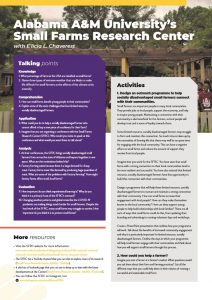

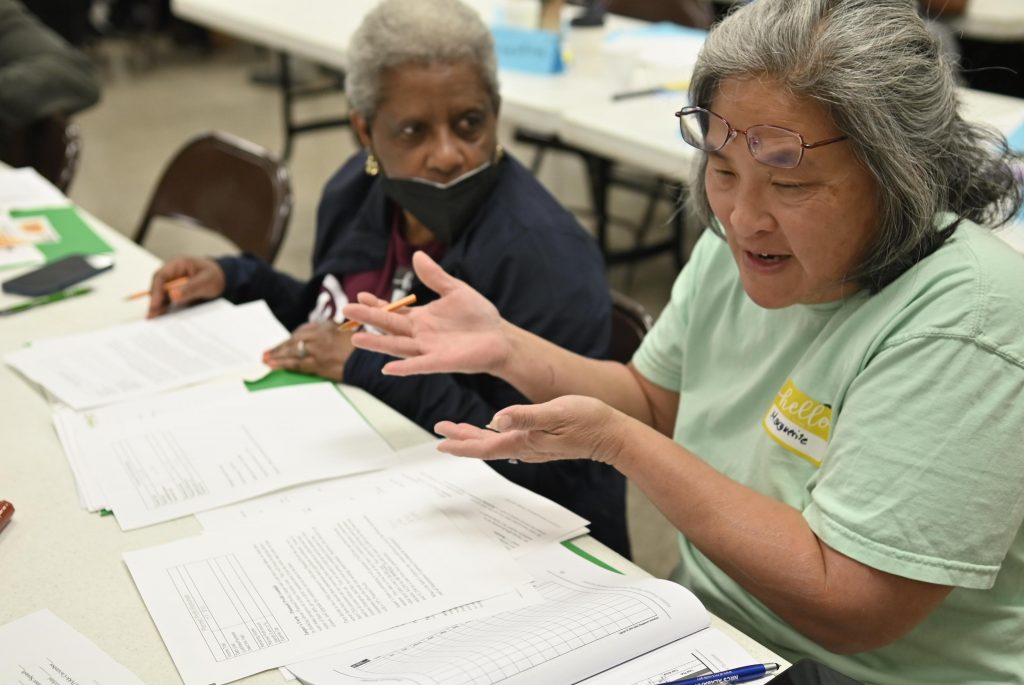
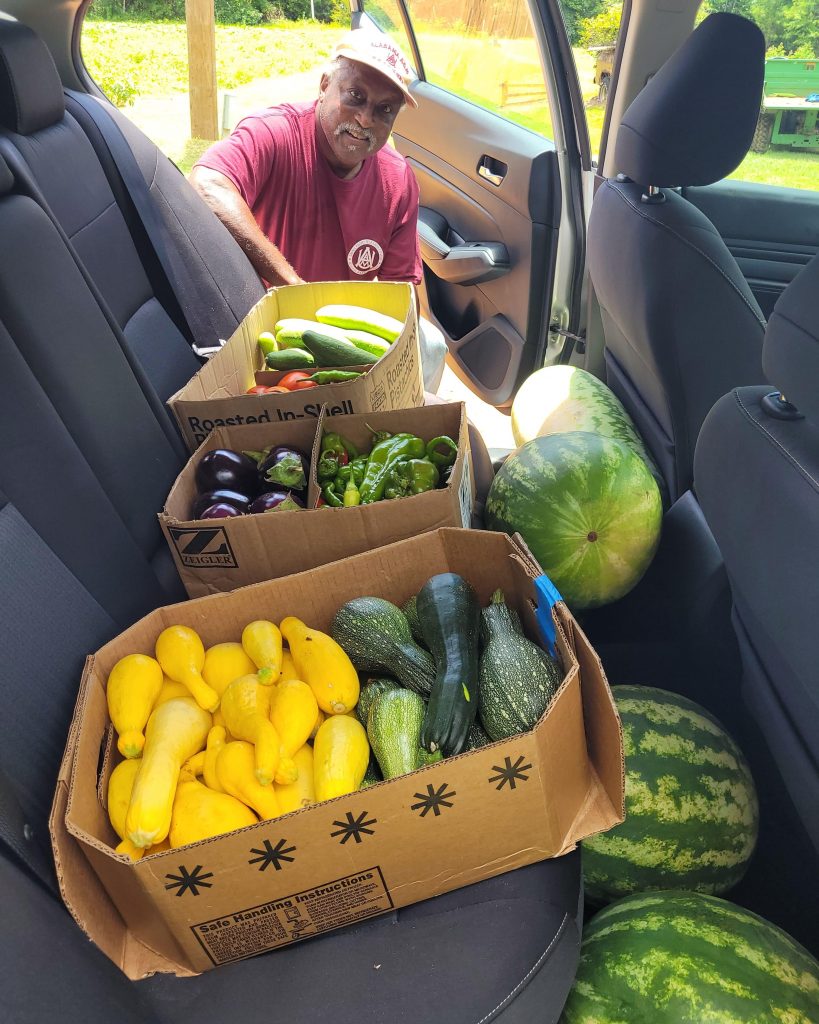
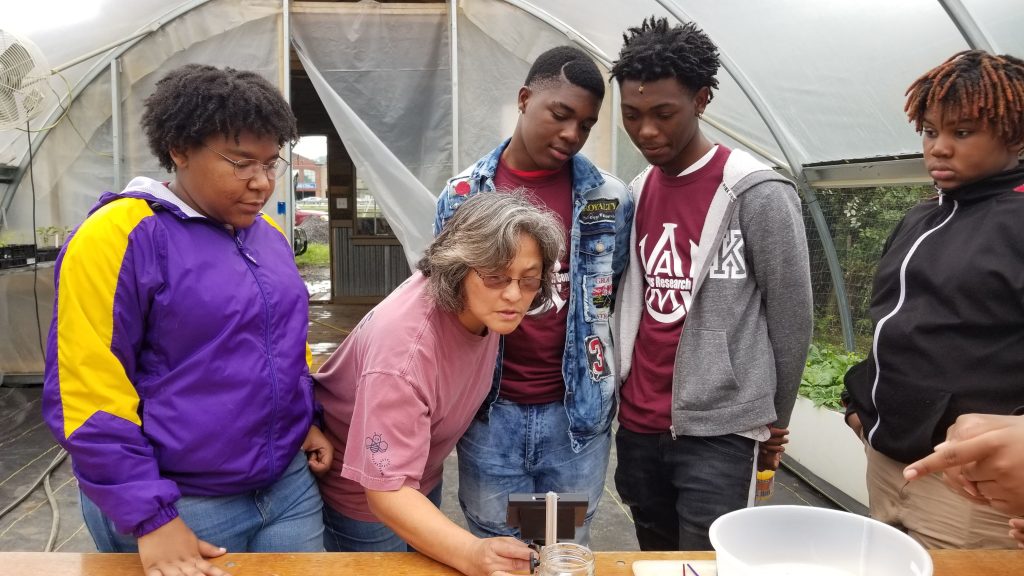
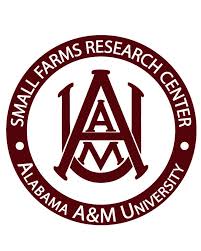
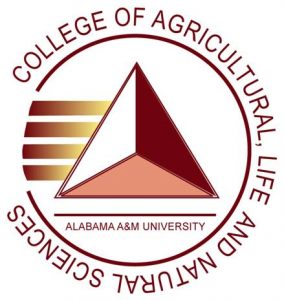



How can small farms help local communities during the COVID-19 pandemic?
Regard Telkom University